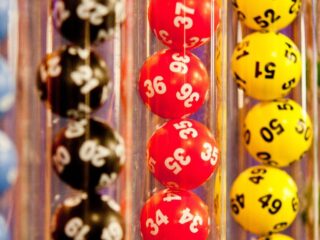
Many players misunderstand RNG’s role in games. This article explains what RNG is and why it’s essential for a great gaming experience.
1. RNG Explained: The Basics
Random Number Generators (RNGs) ensure fair play, replicating physical methods like card shuffling and roulette wheel spinning. These algorithms make game outcomes unpredictable and fair, operating independently of player actions or past results to maintain integrity across millions of games.
- Pseudorandom Number Generators (PRNGs) are commonly used in online casinos like mFortuneCasino. This UK-based casino offers a variety of slots, bingo games, and a unique Live RTP tab that shows games with the best return-to-player percentages. Players also get up to £10 on registration and additional bonuses on their first deposits. PRNGs rely on complex algorithms and seed values to generate random number sequences. For example, when you click “deal” in online blackjack, the PRNG processes millions of calculations per second to determine your cards, ensuring unpredictability.
- True Random Number Generators (TRNGs) take this further by deriving values from physical phenomena like atmospheric noise. Though less common in online gaming, TRNGs add an extra layer of unpredictability, which is useful in high-stakes or cryptocurrency-based platforms.
- Modern RNG systems undergo rigorous testing and certification by independent labs. They must pass statistical randomness tests across billions of numbers, ensuring outcomes match theoretical probabilities. For example, in blackjack, each card should appear 1/52 of the time over a large sample.
2. Why RNG is Crucial for Fair Play
Random Number Generators guarantee fairness in online casino gaming, forming the basis for game integrity and player trust. Through computer algorithms, numerous billions of numbers are produced per second, which makes the results fair.
- Modern RNG systems are tested and certified by independent laboratories like eCOGRA and iTech Labs, which analyze billions of results to verify that outcomes match theoretical probabilities. For example, in roulette, each number should appear 1/37 times (2.7%) over large sample sizes, just as it would on a physical wheel.
- RNG technology in online slots ensures randomness similar to mechanical slot machines, but it can process thousands of spins per second during testing to verify fairness.
- RNG systems prevent manipulation by generating unpredictable results. Unlike physical games, where mechanical wear or dealer technique might influence outcomes, RNG results remain random across millions of iterations.
3. RNG in Action: From Slots to Blackjack
Random Number Generators ensure fairness in different online casino games, adapting to each game type’s unique needs.
These systems replicate the randomness of physical casino games while maintaining consistent probabilities across millions of iterations.
- In online slots, RNG technology determines the outcome by generating random numbers for each reel, creating billions of possible combinations for true randomness with every spin. Try https://slotspeak.net/big-bass-slots-get-more-reel-action-in-2-new-fishing-adventures/ for exciting reel action and a fishing adventure theme, demonstrating RNG’s role in ensuring unpredictable outcomes.
- In virtual card games, RNGs simulate deck shuffling. In online blackjack, for example, the RNG generates a random sequence of cards before each hand, ensuring card distribution matches the probabilities of a physical deck.
- Live dealer games combine physical randomness with RNG technology to power features like bonus rounds and multipliers, blending traditional gameplay with digital enhancements.
4. How RNG is Tested and Regulated
RNG certification and regulation ensure online casino games maintain fairness and randomness. Licensed casinos must have their RNG systems tested by independent laboratories, providing players with proof that game outcomes are truly random and match advertised probabilities.
- Independent laboratories like eCOGRA, GLI, and iTech Labs evaluate RNG systems by analyzing billions of outcomes. For instance, they run virtual slot spins to verify that the return-to-player (RTP) percentage aligns with stated rates and that symbol distribution matches expected probabilities within a small margin of error.
- Regulations require ongoing RNG testing and certification, with casinos undergoing regular audits to maintain certification. Test results are made publicly available, providing transparency about game fairness.
- Certification evaluates RNG implementation, including seed generation, algorithm integrity, and output distribution. Testing ensures that the RNG produces unpredictable, non-repeating results across billions of iterations, meeting international standards.
5. Common Myths About RNG Explained
Myths about Random Number Generators can cause distrust and make a wrong choice. Players can make better decisions when the concept behind RNG is explained to them.
- One common myth is that online games are “due” for a payout after a losing streak. This misunderstands RNG mechanics – each spin, card deal, or roulette result is independent, with the same probability regardless of past outcomes.
- Another misconception is that online casinos can “flip a switch” to adjust RNG outcomes. In reality, licensed casinos use certified RNG systems that are rigorously tested by independent laboratories, ensuring results match expected probabilities and cannot be altered.
- Players also believe they can detect patterns in RNG-based games. This is simply the human tendency to find patterns in random events. Statistical analysis confirms that results follow expected distributions with no predictable patterns.
RNGs ensure fairness and excitement in online casino games. Understanding how they work builds confidence, knowing that every game is random and unbiased. Whether you’re spinning slot games, going to poker, or trying your luck in live dealer games, the help of RNGs is felt, and it builds trust.














